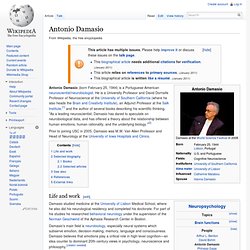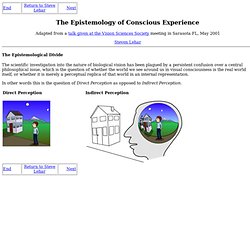

海上城市. DAYTIME - day job or destiny? We are a new species! Mark A Peaty. Gerald Edelman's theory of consciousness - Neural Darwinism, re-entry, and selection. Gerald Edelman's theories are rooted in neurology. In fact, he insists that this is the only foundation for a successful theory of consciousness: the answers are not to be found in quantum physics, philosophical speculation, or computer programming. The structure of the brain is accordingly a key factor. The neurons in the brain wire themselves up in complex and idiosyncratic patterns patterns during growth and then experience: no two people are wired the same way. The neurons do come to compose a number of structures, however. They form groups which tend to fire together, and for Edelman these groups are the basic operating unit of the brain. The principle which makes this structure work is Neuronal Group Selection, or Neural Darwinism. Edelman attaches great importance to higher-order processes - concepts are maps of maps, and arise from the brain's recategorising its own activity.
Edelman is emphatically opposed to the idea that the brain is a computer , however. António Damásio. Antonio Damasio (born February 25, 1944) is a Portuguese-American neuroscientist/neurobiologist.

He is a University Professor and David Dornsife Professor of Neuroscience at the University of Southern California (where he also heads the Brain and Creativity Institute), an Adjunct Professor at the Salk Institute,[1] and the author of several books describing his scientific thinking. "As a leading neuroscientist, Damasio has dared to speculate on neurobiological data, and has offered a theory about the relationship between human emotions, human rationality, and the underlying biology. "[2] Prior to joining USC in 2005, Damasio was M.W. Life and work[edit] Damasio studied medicine at the University of Lisbon Medical School, where he also did his neurological residency and completed his doctorate. Damasio's main field is neurobiology, especially neural systems which subserve emotion, decision-making, memory, language and consciousness. Selected biography[edit] The Epistemology of Conscious Experience.
Adapted from a talk given at the Vision Sciences Society meeting in Sarasota FL, May 2001 Steven Lehar The Epistemological Divide The scientific investigation into the nature of biological vision has been plagued by a persistent confusion over a central philosophical issue, which is the question of whether the world we see around us in visual consciousness is the real world itself, or whether it is merely a perceptual replica of that world in an internal representation.

In other words this is the question of Direct Perception as opposed to Indirect Perception.